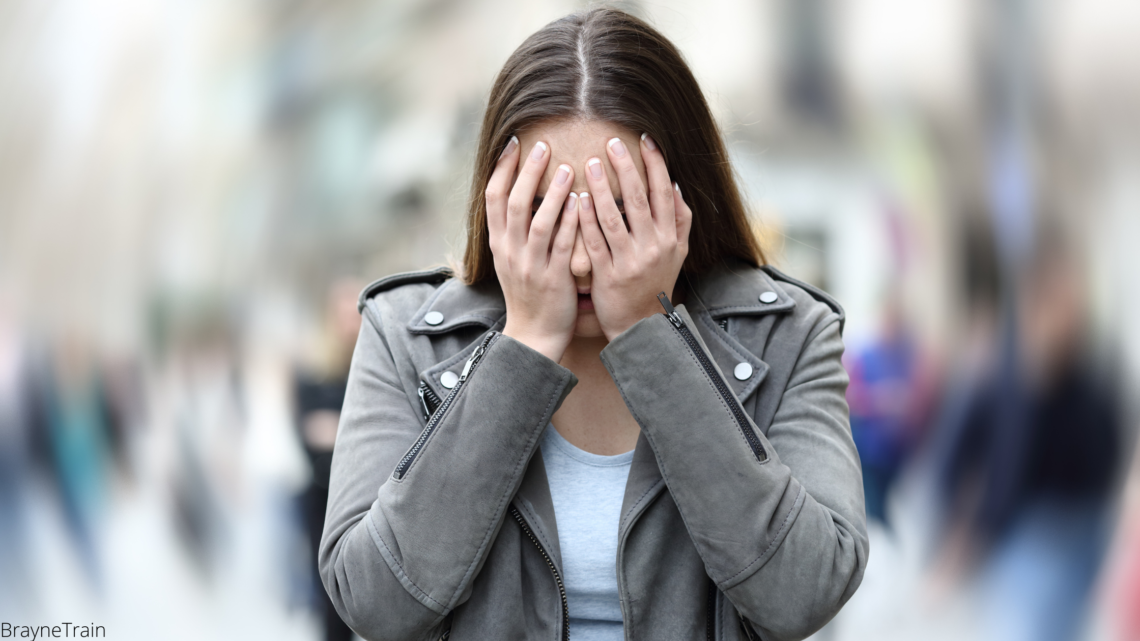
5 Proven Ways to Calm Anxiety Fast!
Anxiety can be incredibly debilitating, and for some people, it can be challenging to find ways to relax.
If you’re struggling with anxiety, don’t worry – there are plenty of ways to calm yourself quickly and effectively!
In this blog post, we have outlined five of the best methods for reducing your anxiety fast.
Keep on reading to find out!
1. Meditate
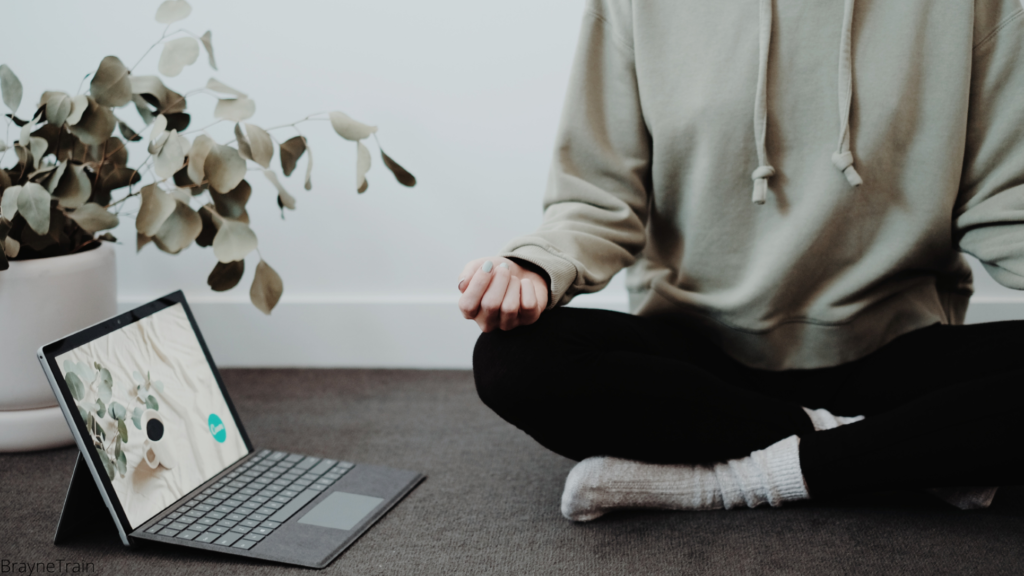
Practicing daily meditation has been proven to be extremely effective in reducing anxiety.
In fact, studies have shown that only a 5 to10 minute meditation can significantly reduce anxiety levels.
If you’re feeling anxious, try taking a few minutes to meditate, and you may be surprised at how effective it can be.
To start meditating:
- Find a quiet place to sit or lie down comfortably.
- Close your eyes and focus on your breath.
- Breath in and out slowly and evenly.
- Try to focus on the present moment and let go of your thoughts.
- If your mind wanders, gently bring it back to your breath.
- Continue for 5 minutes.
- Gradually increase your time.
To learn more about how a 5-minute meditation can reduce anxiety click here.
2. Wash the Dishes; Mindfully!

Doing the dishes is often seen as a dreaded chore. However, washing dishes can actually help reduce anxiety.
In fact, a study published in the Journal Mindfulness found that washing dishes mindfully can help calm anxiety fast.
The study participants were asked to wash dishes while focusing on the sensations of the activity, such as the feel of the water and the movement of their hands.
The results showed that those who washed dishes mindfully had lower anxiety levels.
So next time you’re feeling stressed, try washing dishes mindfully.
Focus on the act of washing rather than on your stressful thoughts.
Notice the feel of the water on your hands, the scent of the soap, and the sound of the plates clinking.
Allow your mind to quiet and simply be in the moment. This simple mindfulness exercise can help to calm your anxiety fast.
To learn about breathwork and how it can help you become more mindful click here.
3. Maintain Good Posture.

When you feel anxious, your body tends to reflect that feeling by folding in on itself, closing off the chest and shoulders, and causing the head to drop down.
In fact, research has indicated a clear correlation between posture and anxiety.
A study done by Harvard University found that sitting up straight improved anxiety, stress, and depression symptoms.
Other studies have shown that maintaining an upright posture can help calm anxiety and reduce stress levels.
A good posture is good for your mental health. Also, it helps you avoid physical pain and discomfort associated with poor posture.
So next time you’re feeling anxious or stressed, remember to stand up straight!
To learn a few amazing self-care and self-love tips click here.
4. Cuddle, Cuddle, Cuddle!

Cuddling may seem like a simple act, but it can have a profound impact on your mental health.
Numerous studies have shown that cuddling can help calm anxiety and reduce stress levels quickly.
The act of cuddling releases oxytocin, which has a calming effect.
What’s more; it doesn’t matter whether you’re cuddling a human, a plushy toy, or your beloved pet; all three can provide similar benefits.
In one study, participants who cuddled a stuffed animal for five minutes showed decreased anxiety levels.
5. Breathe
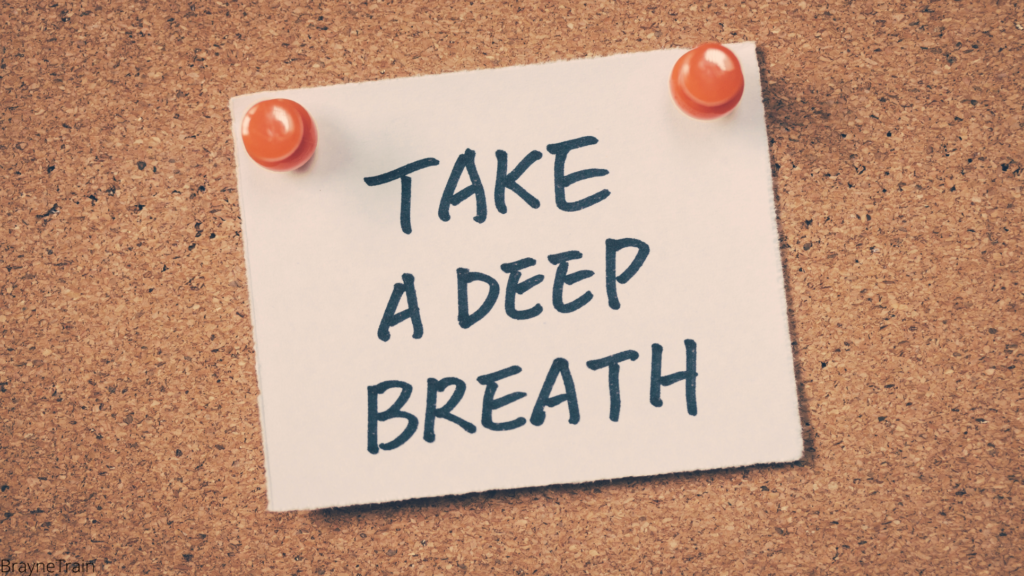
When anxiety strikes, it can feel like the whole world is crashing down on you. Your heart races, your thoughts start to spin, and it feels like you can’t catch your breath.
But there is hope: research has shown that breathwork can effectively calm anxiety fast.
The key is to breathe deeply and slowly from your stomach, making sure your exhales are longer than your inhales. This helps slow down your heart rate and ease tense muscles.
Additionally, breathing deep through your nose and out through your mouth helps further calm your nervous system.
With practice, you’ll be able to use breathwork to calm anxiety fast – and you can do it anywhere, anytime.
Self-love is an important step in reducing your anxiety levels, to learn more click here.
Takeaway
Anxiety is a normal emotion that we all experience at some point in our lives. For some, anxiety is more prevalent due to genetics and can be further amplified by stressful life events.
But it is important to remember that humans are built to overcome anxiety and stress. One way to do this is to make friends with your anxiety. Accept it as a normal part of life and a challenge you can overcome. This doesn’t mean anxiety will never be present, but it does mean that you can learn to manage it healthily.
In this post, we provided some tips that are scientifically proven to work for easing anxiety. So next time you feel anxious, remember these tips and try them out, and you may find yourself a lot calmer after a few minutes. Thank you for reading!
References
Thomas Z, Novak M, Platas SGT, Gautier M, Holgin AP, Fox R, Segal M, Looper KJ, Lipman M, Selchen S, Mucsi I, Herrmann N, Rej S. Brief Mindfulness Meditation for Depression and Anxiety Symptoms in Patients Undergoing Hemodialysis: A Pilot Feasibility Study. Clin J Am Soc Nephrol. 2017 Dec 7;12(12):2008-2015. doi: 10.2215/CJN.03900417. Epub 2017 Oct 12. PMID: 29025788; PMCID: PMC5718270.
Hanley, A.W., Warner, A.R., Dehili, V.M. et al. Washing Dishes to Wash the Dishes: Brief Instruction in an Informal Mindfulness Practice. Mindfulness 6, 1095–1103 (2015). https://doi.org/10.1007/s12671-014-0360-9
Nair S, Sagar M, Sollers J 3rd, Consedine N, Broadbent E. Do slumped and upright postures affect stress responses? A randomized trial. Health Psychol. 2015 Jun;34(6):632-41. doi: 10.1037/hea0000146. Epub 2014 Sep 15. PMID: 25222091.
Ma X, Yue ZQ, Gong ZQ, et al. The Effect of Diaphragmatic Breathing on Attention, Negative Affect and Stress in Healthy Adults. Front Psychol. 2017;8:874. Published 2017 Jun 6. doi:10.3389/fpsyg.2017.00874


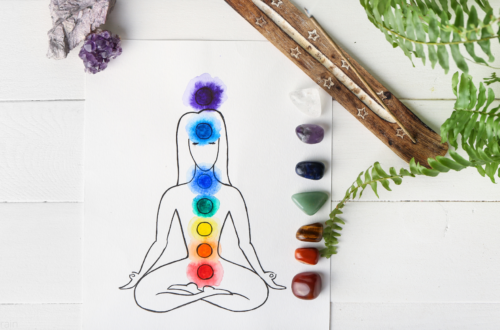
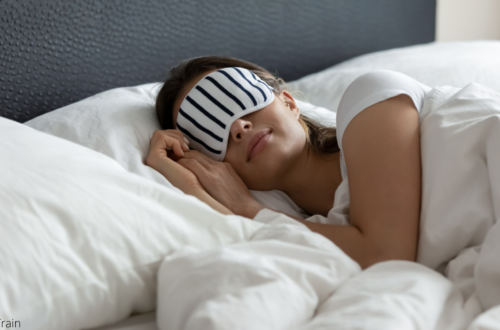
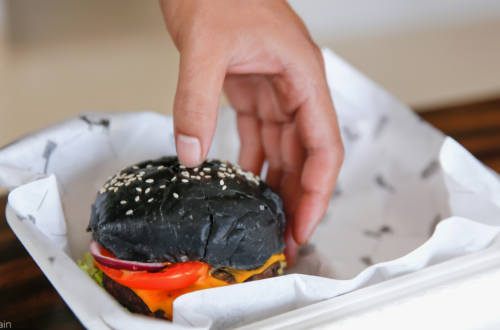
One Comment
Pingback: